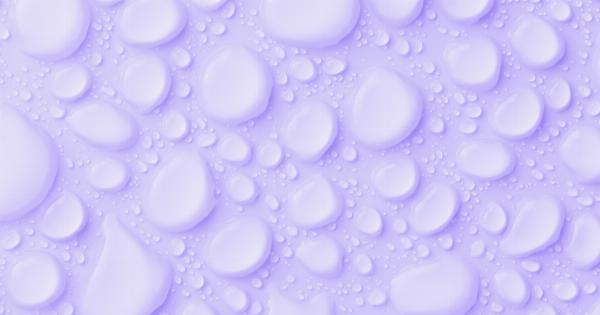Premenstrual Syndrome (PMS) refers to a wide range of physical and emotional symptoms experienced by women in the days leading up to their menstrual period.
These symptoms can vary in intensity and may include bloating, breast tenderness, irritability, mood swings, fatigue, and cravings. PMS affects around 75% of women during their reproductive years, with approximately 20-30% experiencing symptoms severe enough to disrupt their daily lives.
Understanding PMS
PMS is thought to be caused by hormonal fluctuations during the menstrual cycle. The exact mechanisms behind PMS are not fully understood, but it is believed that changes in estrogen and progesterone levels contribute to the symptoms.
Additionally, serotonin, a neurotransmitter that regulates mood, is also thought to play a role in PMS symptomatology.
The Effects of Alcohol on PMS Symptoms
Alcohol is known to have various effects on the body, including alterations in hormone levels and neurotransmitter activity.
Many women report increased PMS symptoms after consuming alcohol, suggesting a potential link between alcohol and PMS exacerbation. Here, we will explore the relationship between alcohol consumption and specific PMS symptoms.
1. Bloating and Water Retention
Alcohol is a diuretic, meaning it promotes increased urine production and can lead to dehydration. However, in the context of PMS, alcohol consumption can also contribute to water retention and bloating.
This is because alcohol causes blood vessels to dilate, resulting in fluid buildup and swelling. Consequently, women may experience heightened bloating and water retention during their premenstrual phase if they consume alcohol.
2. Breast Tenderness
For some women, PMS is characterized by breast tenderness or soreness. Alcohol consumption can exacerbate this symptom as alcohol affects hormone levels.
Alcohol consumption leads to an increase in estrogen, which can cause breast tissue to become more sensitive and tender. Therefore, women experiencing breast tenderness as part of their PMS may want to consider reducing their alcohol intake during this time.
3. Irritability and Mood Swings
PMS is often accompanied by irritability, mood swings, and emotional instability. Alcohol is a known depressant that affects the central nervous system and can intensify these symptoms.
While alcohol may provide temporary relief from negative emotions, it can ultimately worsen mood swings and irritability during the premenstrual period. It is advisable to limit alcohol consumption to minimize these effects.
4. Fatigue and Sleep Disturbances
PMS can result in fatigue and disrupted sleep patterns. Alcohol consumption can exacerbate these symptoms as alcohol negatively impacts sleep quality and leads to increased feelings of tiredness.
Furthermore, alcohol is a diuretic, which can further contribute to dehydration and fatigue. Restricting alcohol intake during the premenstrual phase may help maintain better sleep quality and decrease feelings of fatigue.
5. Cravings and Emotional Eating
Many women experience cravings for specific foods during PMS, often high in sugar, salt, and fat. Alcohol is known to affect inhibitions and decision-making processes.
As a result, alcohol consumption during PMS can weaken self-control, leading to indulgence in unhealthy foods and emotional eating. It is important to be mindful of this effect and make conscious choices to help manage cravings and maintain a balanced diet.
6. Impact on Serotonin Levels
As mentioned earlier, serotonin plays a significant role in regulating mood and emotions. Alcohol consumption can disrupt serotonin levels, leading to shifts in mood and exacerbating symptoms of depression and anxiety.
Since PMS symptoms are already influenced by serotonin fluctuations, alcohol intake could further intensify these emotional symptoms.
7. Individual Variations and Moderation
It is important to note that the effects of alcohol on PMS symptoms can vary among individuals. Some women may not notice a significant impact, while others may find their symptoms worsened.
Additionally, the severity of PMS symptoms can also influence how alcohol affects a person’s well-being during this time. Moderate alcohol consumption is generally considered safe for most individuals, but it is advisable to be aware of personal reactions and adjust intake accordingly.
8. Coping Strategies for PMS
While avoiding alcohol during the premenstrual phase may help alleviate certain symptoms, there are several other strategies that can aid in coping with PMS:.
- Maintain a balanced and healthy diet.
- Engage in regular physical exercise, which can help alleviate physical and emotional symptoms.
- Practice stress management techniques like yoga, meditation, or deep breathing exercises.
- Ensure adequate sleep and rest.
- Consider herbal remedies or supplements, such as evening primrose oil or vitamin B6.
- Consult a healthcare professional if symptoms are severely affecting daily life.
Conclusion
The relationship between alcohol consumption and PMS symptoms is complex and can vary among women. While alcohol may provide temporary relief from certain PMS symptoms, it can also exacerbate others and impact overall well-being.
Monitoring personal reactions, moderating alcohol intake, and adopting healthy coping strategies can help manage PMS symptoms effectively.




























